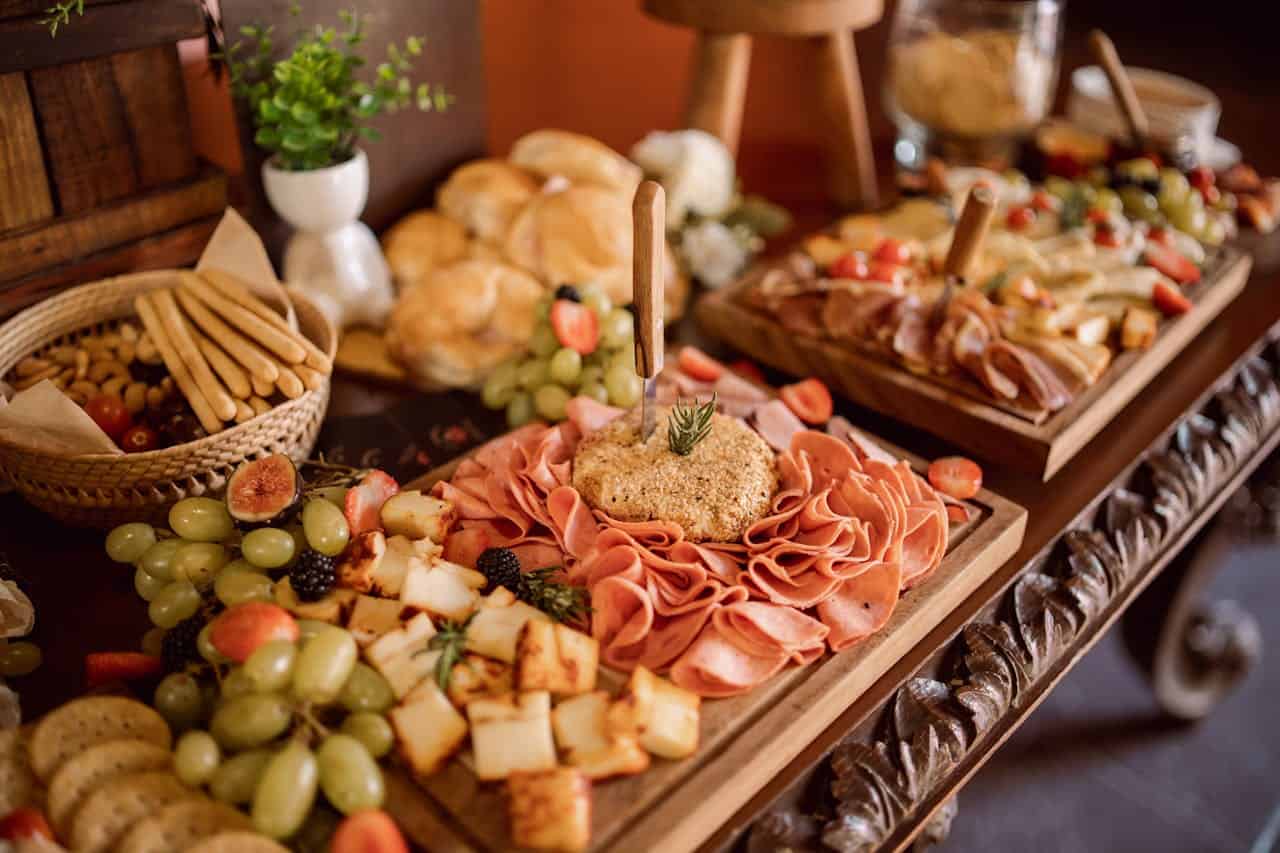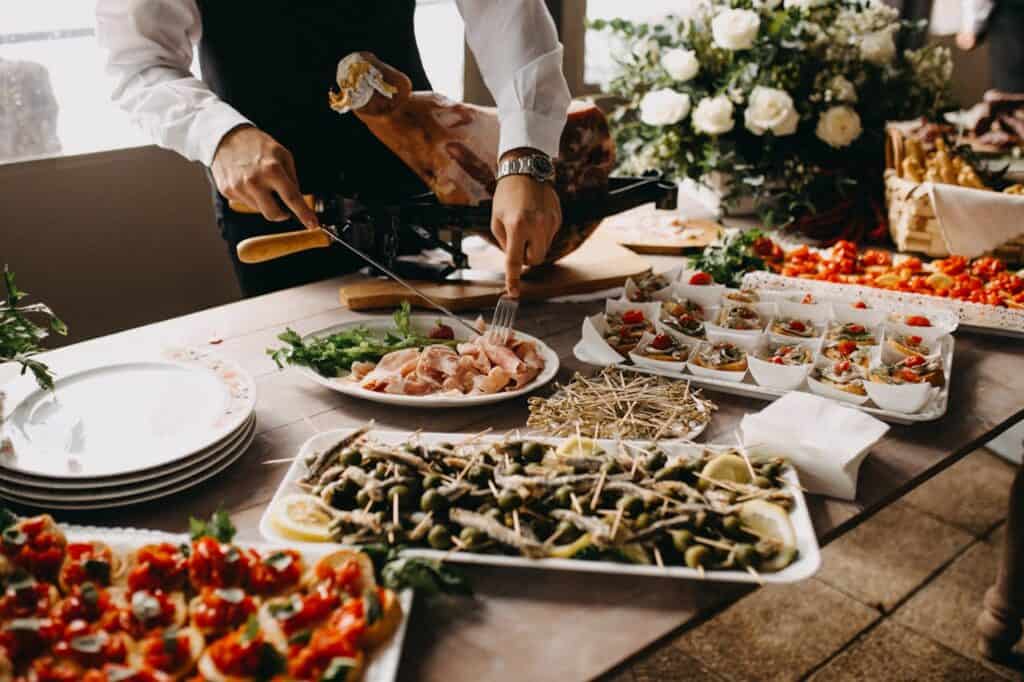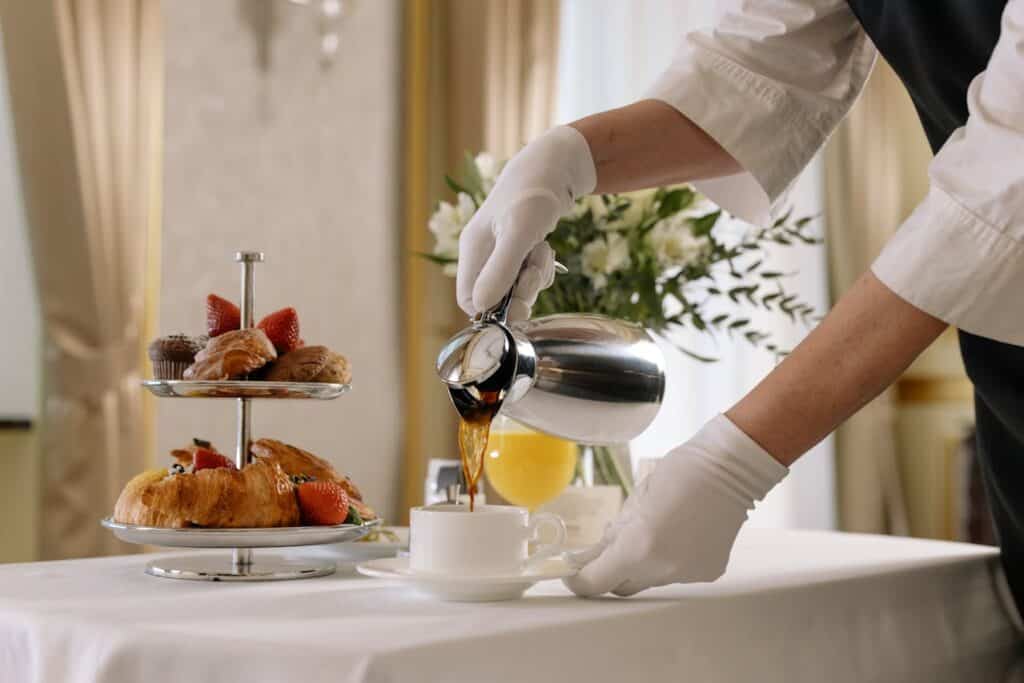
By Jermaine Thomas January 7, 2025
Occasions, be they weddings, business events, or small celebrations, are meant to foster unforgettable moments. A crucial factor that can determine the success or failure of an event is catering. Beyond just offering sustenance, food serves an essential function in creating the mood and atmosphere, affecting the feelings of guests, and enriching the entire experience.
The Emotional Connection Between Food and Events
Food is deeply tied to human emotions. Throughout history, sharing meals has been a symbol of community, celebration, and bonding. Certain foods evoke powerful memories and feelings, creating an emotional connection that goes beyond taste. For example, comfort foods such as mac and cheese or warm soup can evoke feelings of warmth and nostalgia. Similarly, exotic or gourmet dishes may spark excitement and curiosity.
During events, this emotional bond is even more evident. Visitors come with certain expectations, and the cuisine they experience can either fulfill or surpass those expectations, creating a memorable impact. Providing recognizable comfort foods can foster a feeling of belonging, while distinctive dishes can introduce an aspect of surprise and thrill. The emotional reaction to food can influence how guests view the event overall.
Moreover, food presentation and service style impact emotions. A beautifully presented buffet with vibrant colors and artistic plating can evoke feelings of anticipation and delight. On the other hand, a disorganized setup may cause frustration or dissatisfaction. Thus, well-thought-out catering enhances not just the palate but also the mood, creating a positive emotional environment for all attendees.

Catering and Event Ambiance: The Perfect Pairing
Catering is among the key factors enhancing the atmosphere of an event. The appropriate menu, along with suitable presentation, can establish the intended atmosphere for any event. Envision a formal gala with sophisticatedly arranged hors d’oeuvres compared to a casual outdoor wedding featuring robust, farm-fresh meals. In every situation, the catering matches the theme of the event, enhancing the desired atmosphere.
For formal events, catering often focuses on sophistication. Fine dining menus, multi-course meals, and exquisite plating enhance the elegance of the occasion. On the other hand, casual events benefit from relaxed catering styles, such as food stations or family-style serving, which encourage mingling and foster a sense of community.
Additionally, catering affects the sensory environment. Aromas wafting from a live cooking station can invigorate the senses, while soft background music paired with light refreshments can create a calming ambiance. The temperature and texture of food also play a role in setting the mood—warm dishes create a cozy feel, while chilled options are refreshing and energizing.
Lighting, decor, and music often take center stage when planning an event’s ambiance, but the role of catering should not be underestimated. When all these elements work in harmony, they create a cohesive atmosphere that enhances the emotional experience of guests.
The Role of Food in Guest Engagement
Engaging guests is one of the primary goals of any event, and food can be a powerful tool in achieving this. Unique catering options, such as interactive food stations, can encourage guests to participate and mingle. For example, a build-your-own taco bar or a live sushi-making station invites guests to engage with the food and with each other, sparking conversation and excitement.
Engaging catering not only provides entertainment but also fosters unforgettable experiences. Attendees are more prone to recall an occasion where they engaged directly with the food. Furthermore, providing a varied menu that accommodates different dietary preferences promotes inclusivity, allowing every guest to feel appreciated and acknowledged.
Beyond interaction, food can influence the pacing of an event. For example, serving appetizers during a networking session encourages guests to move around and interact. Similarly, a well-timed dessert break during a long conference can re-energize attendees and improve focus.
How Different Cuisines Influence Mood
The selection of food can greatly influence the emotional atmosphere of an event. Every cuisine possesses its unique cultural importance and emotional associations. Here’s how various cuisines can influence the mood:
Comfort Foods
Comfort foods are known for evoking feelings of warmth, nostalgia, and relaxation. These are often associated with home-cooked meals or childhood memories. Serving comfort foods at an event can create a welcoming and cozy atmosphere, making guests feel at ease.
Gourmet and Exotic Foods
Gourmet and exotic dishes can spark curiosity and excitement. They add an element of luxury and sophistication, making guests feel special. These foods are perfect for upscale events where the goal is to impress and delight.
Cultural and Themed Cuisines
Offering cultural or themed cuisines can take guests to a different location and era, enriching the event’s theme. For instance, a Mediterranean-inspired menu featuring fresh fish and colorful salads can create a feeling of summer and tranquility.
Healthy and Light Options
Healthy and light menu options can create a refreshing and energizing atmosphere. These are particularly suitable for daytime or corporate events, where guests want to feel alert and productive.
The Importance of Customization in Catering
No two events are the same, and catering should reflect the uniqueness of each gathering. Customization allows event planners to tailor the menu to fit the theme, guest preferences, and emotional goals of the event. Personalized menus show thoughtfulness and attention to detail, making guests feel valued.
Personalization can also encompass presentation and service approach. For example, providing beverages in custom glasses or featuring signature cocktails named after the hosts can enhance the experience. Likewise, providing customized desserts featuring guests’ names or themed decorations strengthens the emotional bond.

Food and Memory: Creating Lasting Impressions
The emotional impact of food extends beyond the event itself. People often associate memorable experiences with specific flavors and aromas. A well-curated menu can leave a lasting impression, with guests recalling the delicious food and warm ambiance long after the event ends.
Crafting unforgettable experiences through catering encompasses more than just excellent cuisine. It’s about creating an experience that captivates every sense. Whether it’s the scent of warm bread, the appearance of a beautifully arranged meal, or the flavor of a well-seasoned main course, these sensory aspects help create enduring memories.
Moreover, offering a takeaway, such as personalized treats or packaged leftovers, allows guests to relive the experience at home. This not only leaves a positive impression but also reinforces the emotional connection to the event.
Conclusion
Catering is far more than a functional aspect of event planning—it’s an emotional experience that shapes the mood, ambiance, and memories of attendees. From the choice of cuisine to the presentation and service style, every detail contributes to the overall atmosphere of an event.
Grasping the emotional significance of food allows event organizers to design occasions that connect with attendees on a more profound level. Through the thoughtful choice of menus that inspire specific emotions, providing engaging and tailored catering choices, and focusing on aesthetics, events can transcend mere social gatherings to become memorable experiences.
Ultimately, catering is a powerful tool in crafting emotional experiences. When done right, it elevates an event from ordinary to extraordinary, leaving guests with lasting memories and positive emotions.